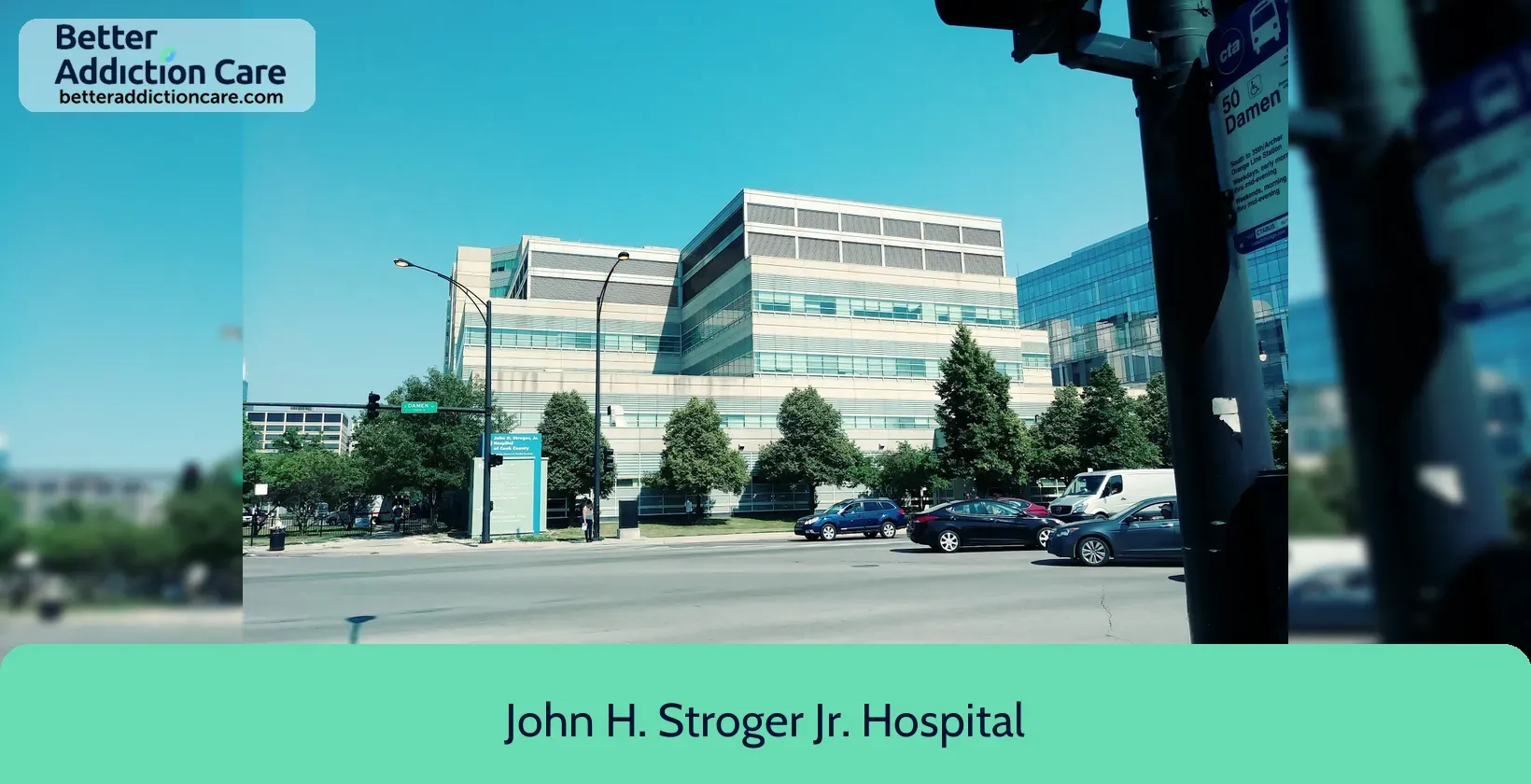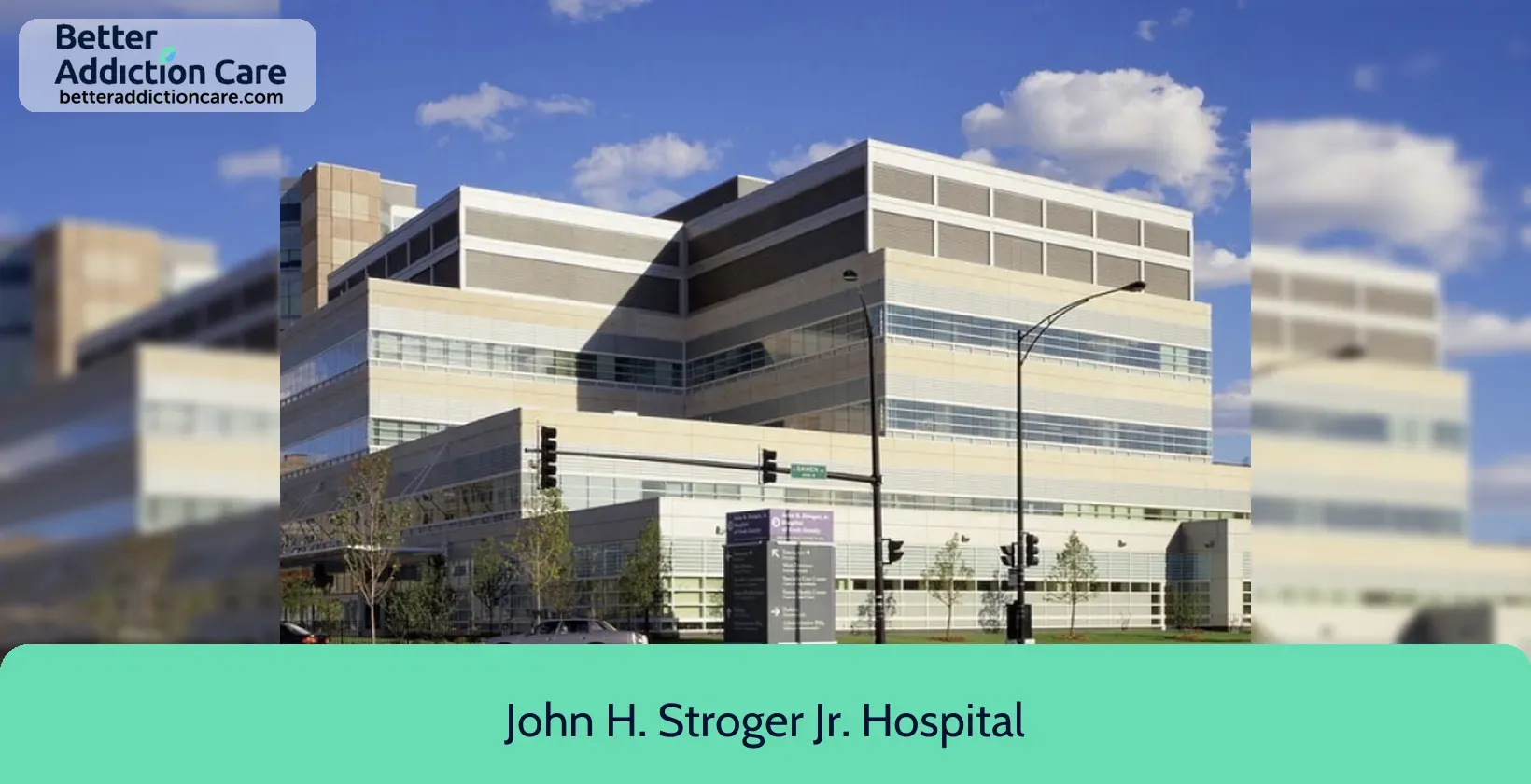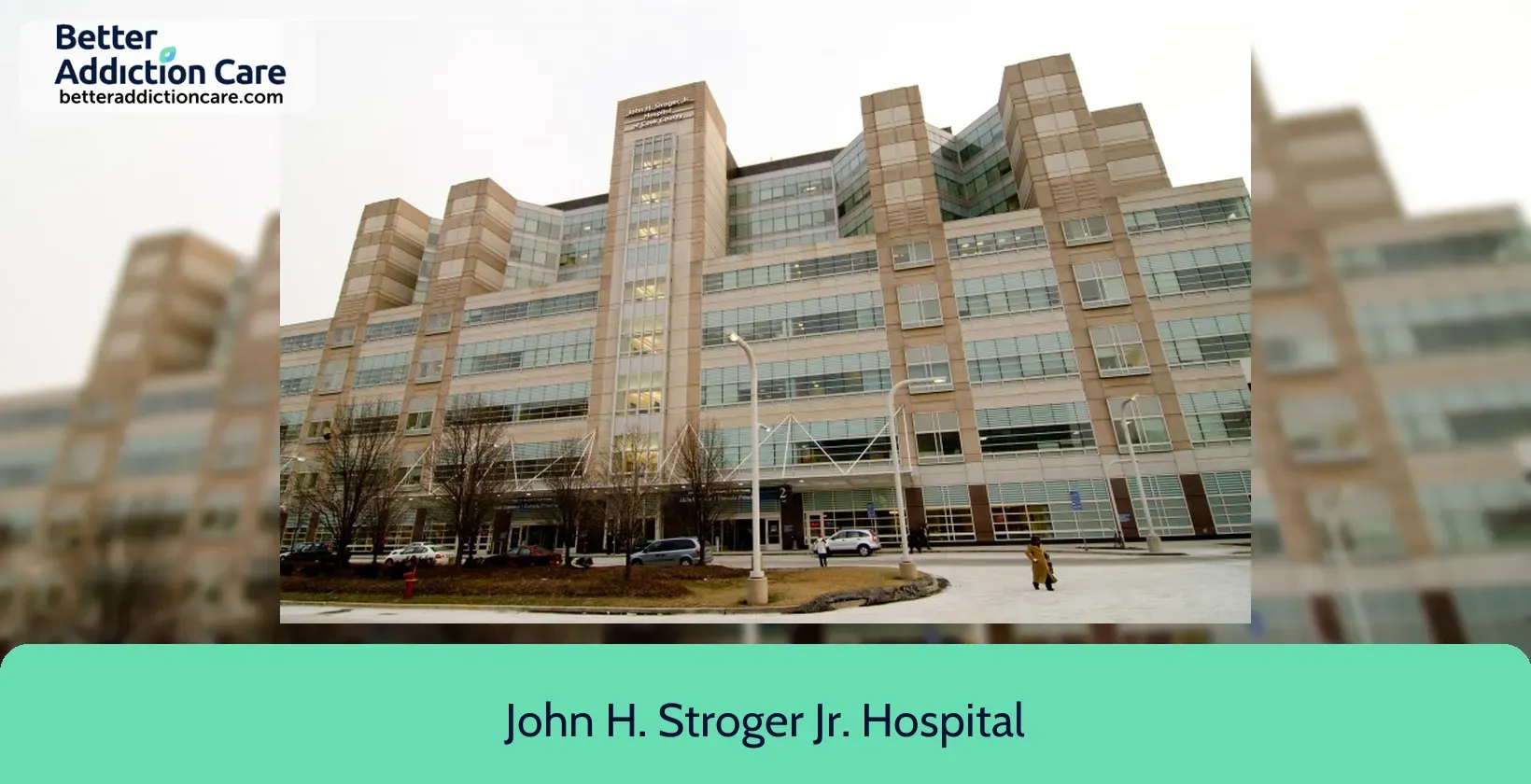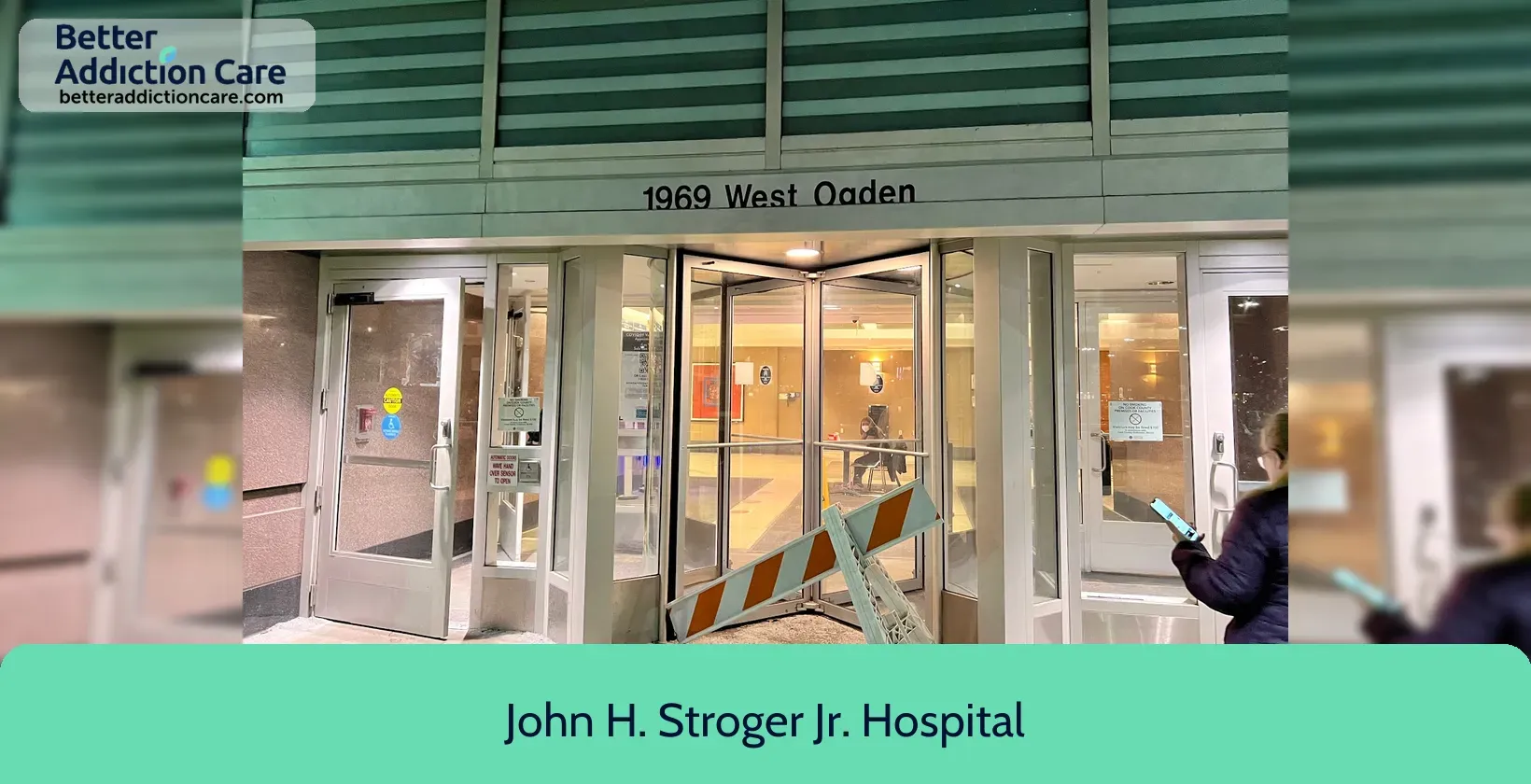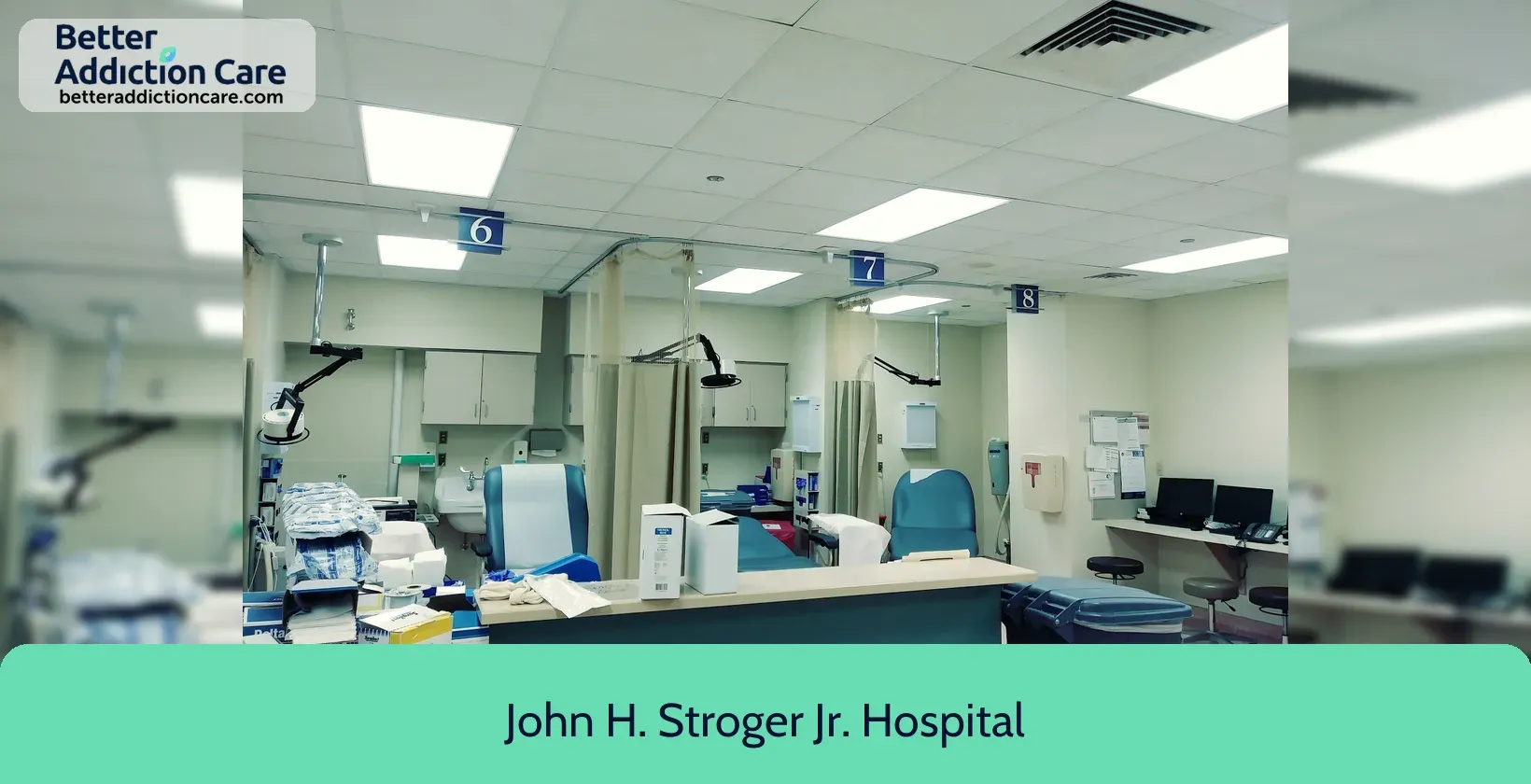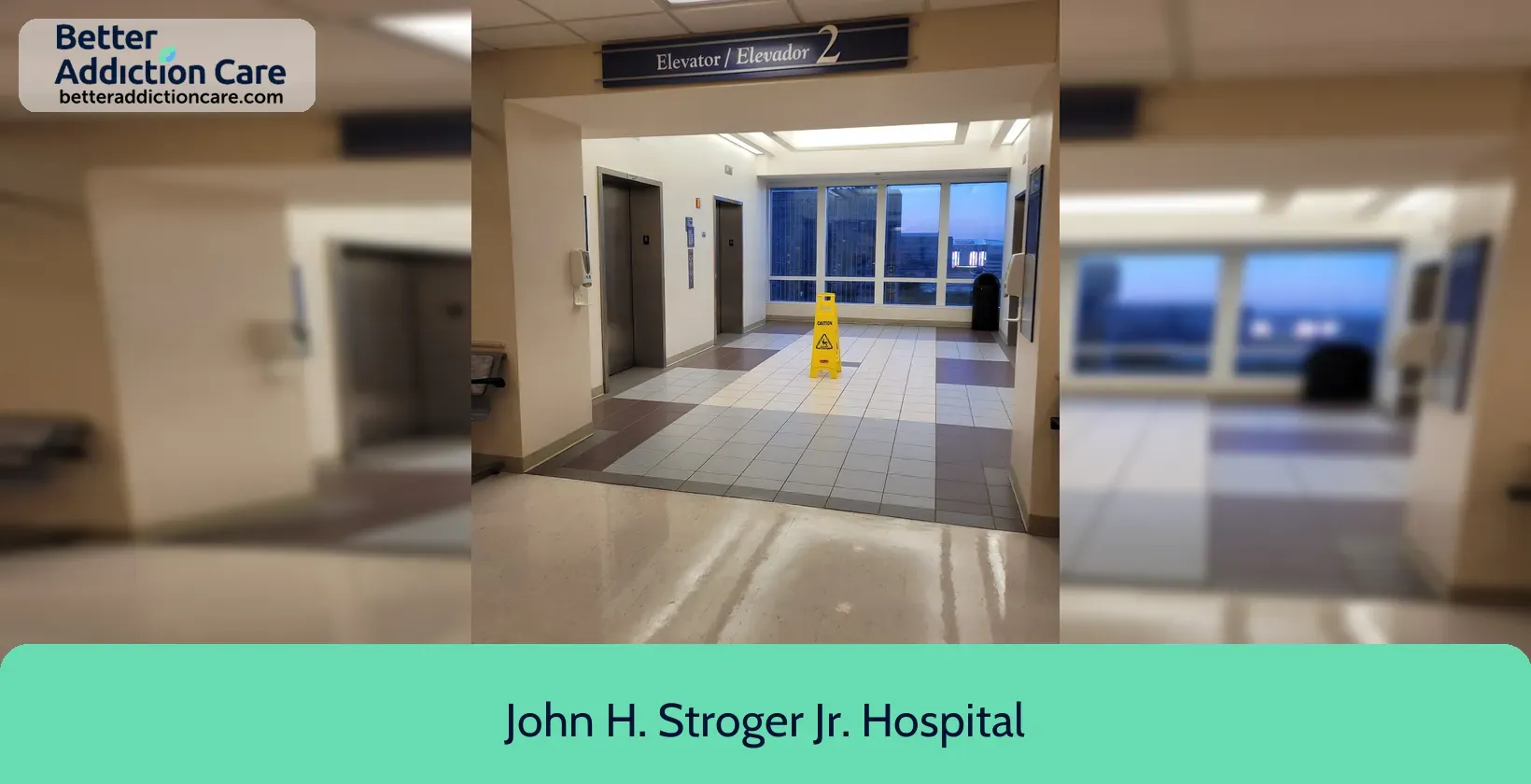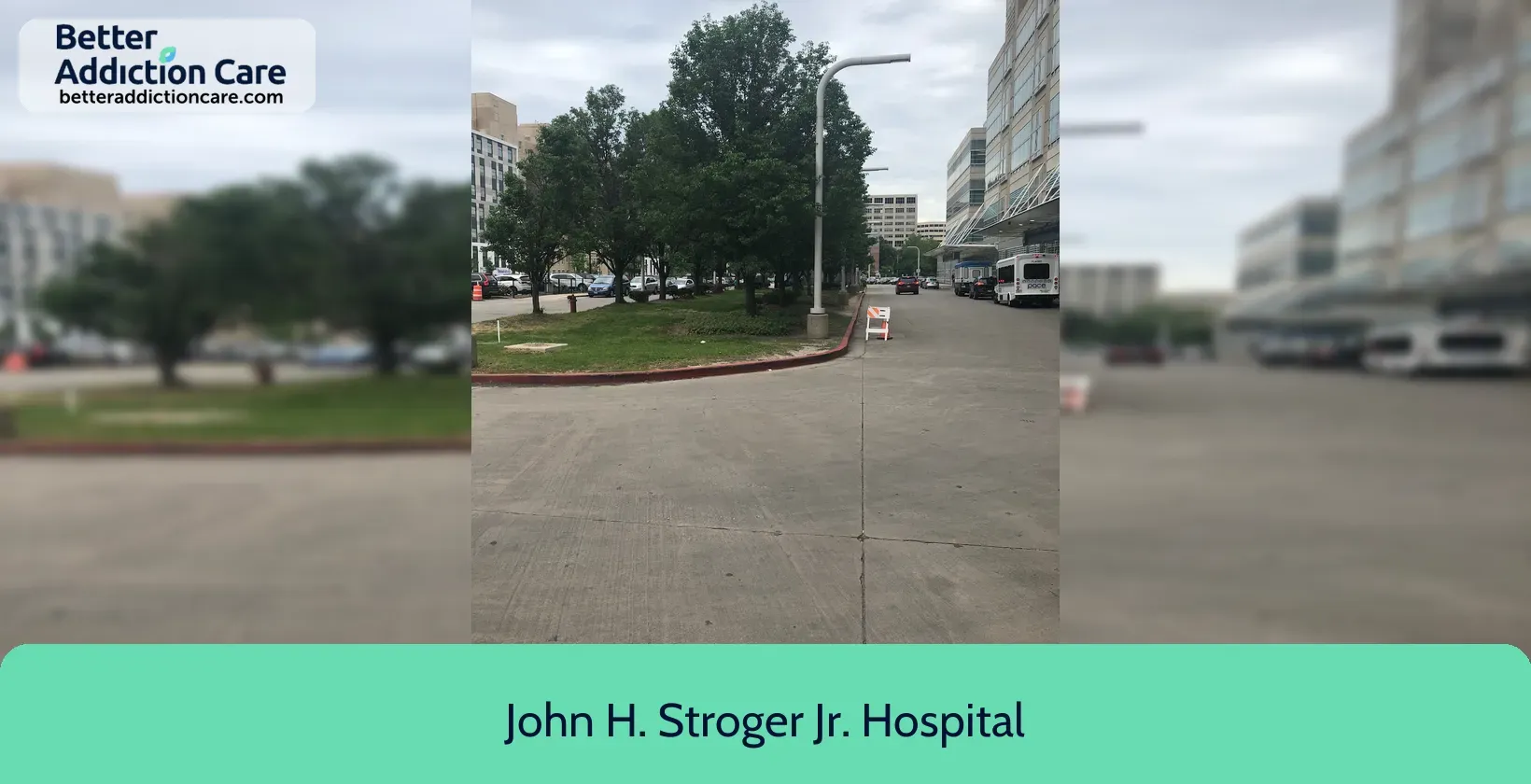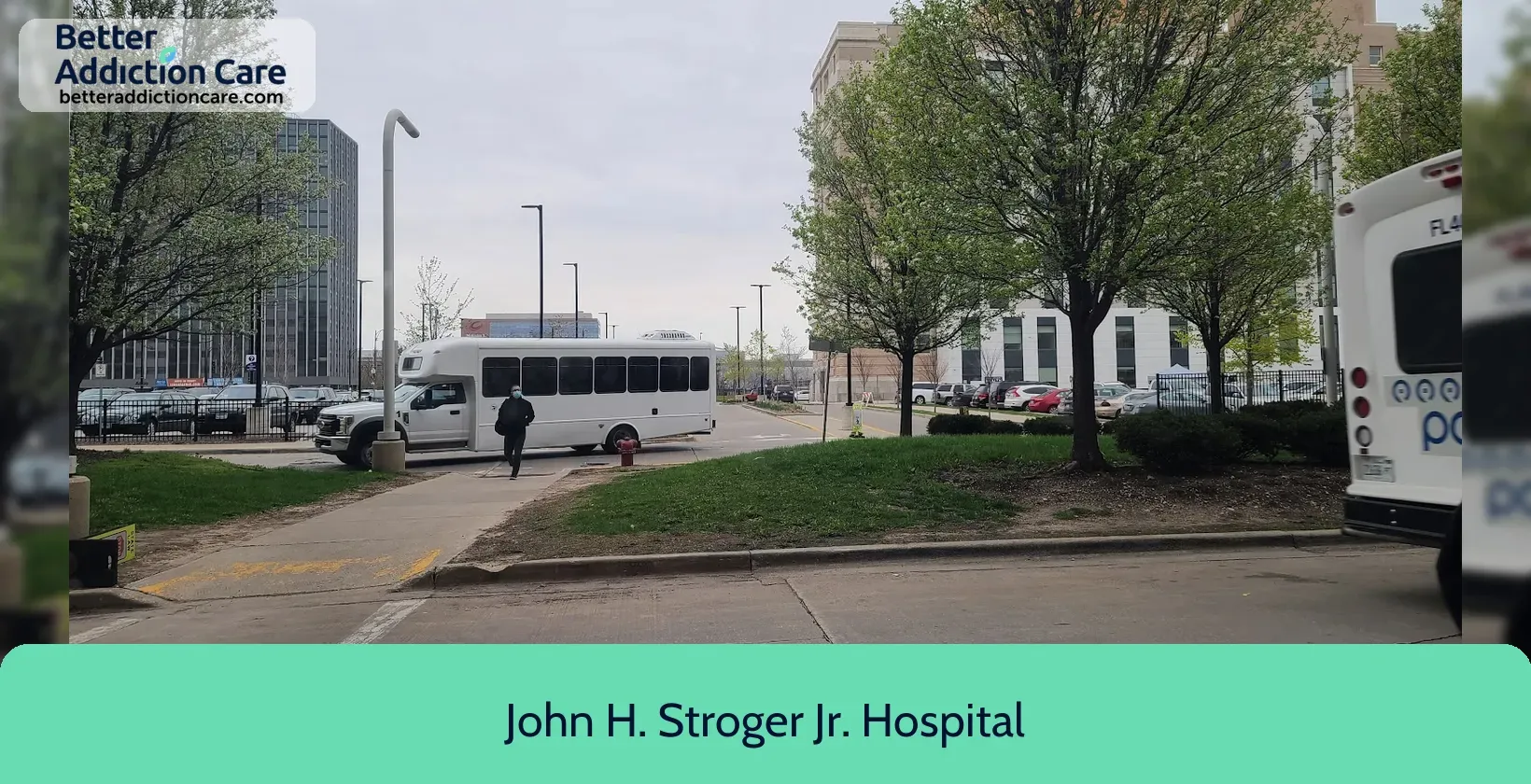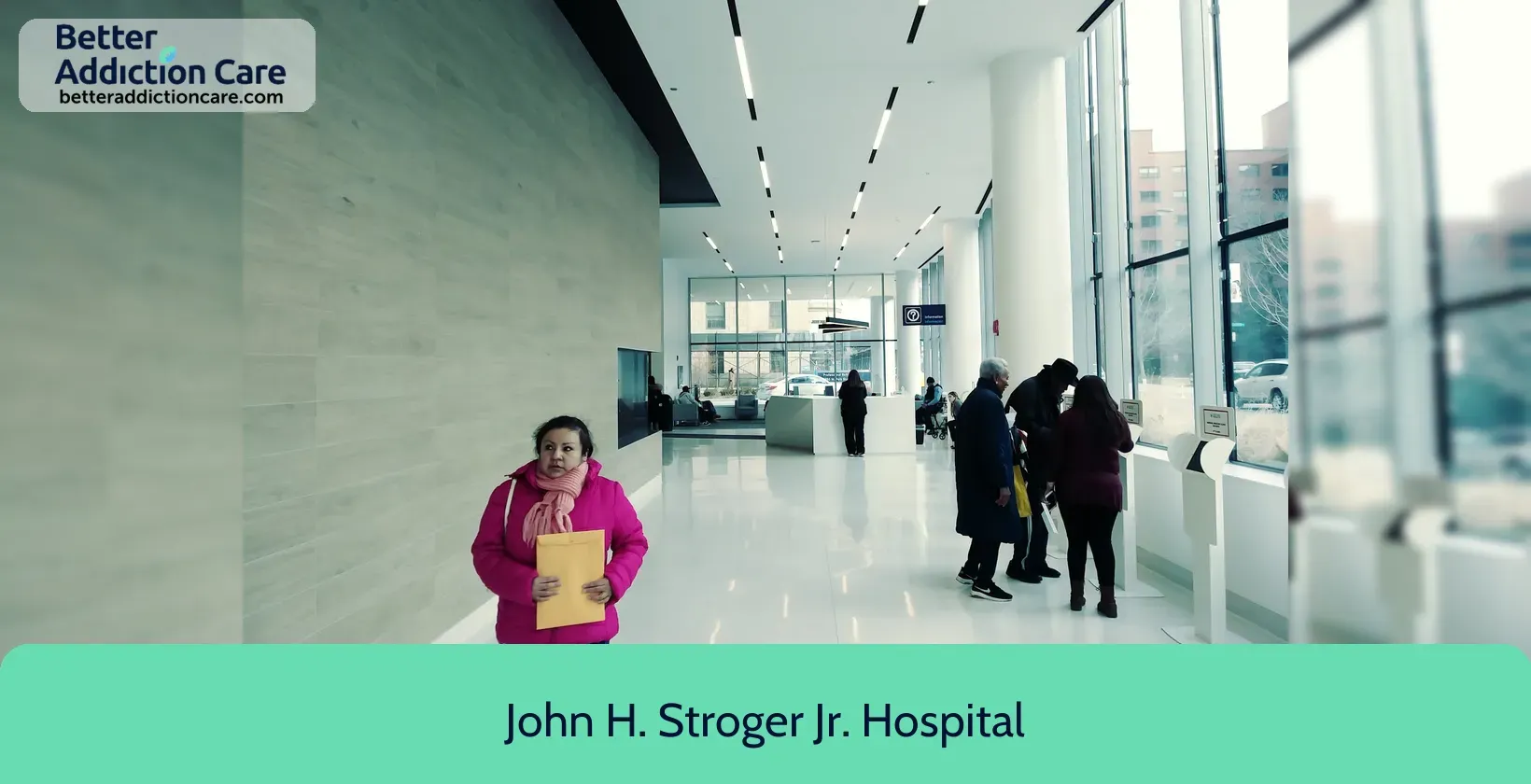Overview
John H. Stroger Jr. Hospital - Psychiatry Department is a mental health treatment center for people seeking treatment near Cook County. As part of their treatment modalities for recovery, John H. Stroger Jr. Hospital - Psychiatry Department provides couples/family therapy, group counseling, and cognitive behavioral therapy during treatment. John H. Stroger Jr. Hospital - Psychiatry Department is located in Chicago, Illinois, accepting cash or self-payment for treatment.
John H. Stroger Jr. Hospital - Psychiatry Department at a Glance
Payment Options
- Cash or self-payment
- Medicaid
- Medicare
- State-financed health insurance plan other than Medicaid
- Private health insurance
Assessments
- Screening for tobacco use
- Comprehensive mental health assessment
- Comprehensive substance use assessment
Age Groups
- Seniors or older adults
- Young adults
- Children/adolescents
- Adults
- Seniors
Ancillary Services
- Integrated primary care services
Highlights About John H. Stroger Jr. Hospital - Psychiatry Department
6.68/10
With an overall rating of 6.68/10, this facility has following balanced range of services. Alcohol Rehabilitation: 8.00/10, Drug Rehab and Detox: 6.00/10, Insurance and Payments: 6.00/10, Treatment Options: 6.73/10.-
Alcohol Rehabilitation 8.00
-
Treatment Options 6.73
-
Drug Rehab and Detox 6.00
-
Insurance and Payments 6.00
Treatment At John H. Stroger Jr. Hospital - Psychiatry Department
Treatment Conditions
- Mental health treatment
- Alcoholism
- Substance use treatment
- Co-occurring Disorders
Care Levels
- Outpatient
Treatment Modalities
- Couples/family therapy
- Group counseling
- Cognitive behavioral therapy
- Dialectical behavior therapy
- Integrated Mental and Substance Use Disorder treatment
Ancillary Services
Languages
- Spanish
Special Programs
- Clients with co-occurring mental and substance use disorders
- Clients with HIV or AIDS
- Clients who have experienced trauma
- Children/adolescents with serious emotional disturbance (SED)
- Persons 18 and older with serious mental illness (SMI)
Get Help Now
Common Questions About John H. Stroger Jr. Hospital - Psychiatry Department
Contact Information
Other Facilities in Chicago

7.06

6.99

7.63

7.87

7.19

7.59

7.17
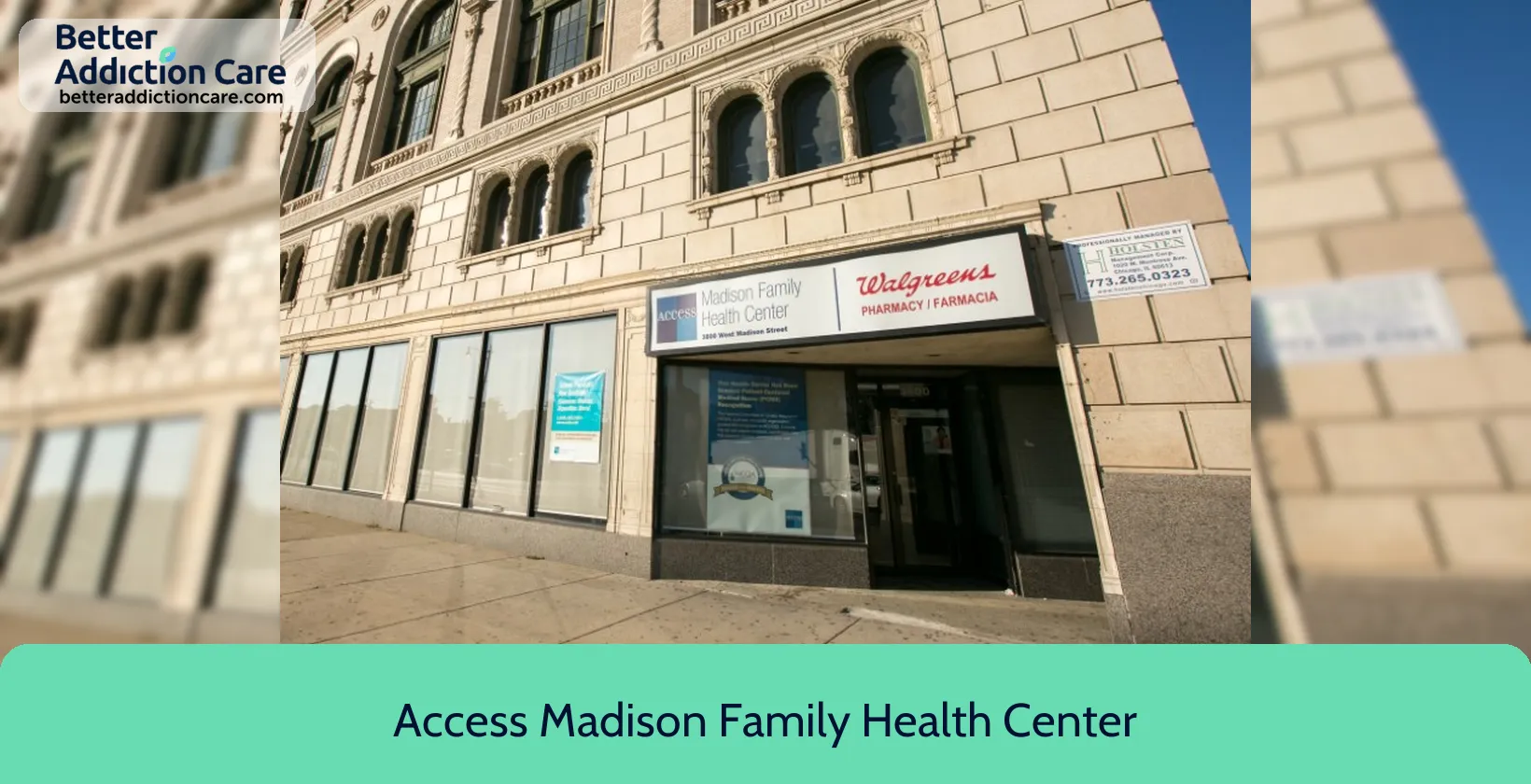
7.17
DISCLAIMER: The facility name, logo and brand are the property and registered trademarks of Access Madison Family Health Center, and are being used for identification and informational purposes only. Use of these names, logos and brands shall not imply endorsement. BetterAddictionCare.com is not affiliated with or sponsored by Access Madison Family Health Center.
